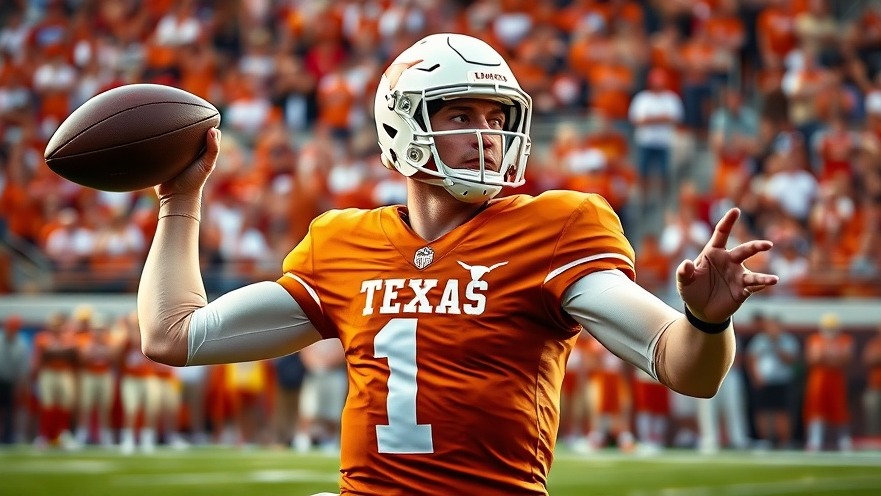
Why the Hype Around Arch Manning Can Feel Overwhelming
In the world of college football, few names evoke as strong reactions as Arch Manning. The grandson of NFL legend Archie Manning and nephew to both Peyton and Eli Manning, Arch is not only living under a tremendous legacy, but he is also the projected star quarterback for the Texas Longhorns. With such illustrious lineage, it's natural for fans and pundits to lionize him. Yet, this immense attention often becomes exhausting, resulting in a whirlwind of opinions on whether such hype is justified.
The Pressure of Living Up to a Name
The expectations placed on athletes often have little to do with their own abilities. Manning's lineage has infused anticipation that can feel almost burdensome. Sports analysts have voiced their criticisms, including points made recently by former Alabama quarterback Greg McElroy and other pundits who have asked whether the constant scrutiny is fair.
This comparison to his legendary family often leads to unfair evaluations of his skill set before he even steps onto the field. The scrutiny raises a crucial question: does this perpetual spotlight help or hinder young athletes like Manning?
Rethinking Public Discourse Around Young Athletes
It's essential to critically examine how we talk about young athletes. Is the fascination with Manning’s career a symptom of a broader cultural obsession with hype and celebrity? As media consumers, we should ask ourselves if our consumption of sports news contributes to an environment that often criticizes rather than supports promising, young talent.
Furthermore, conversations around Manning often deepen when dissecting the perception of fairness. Critics argue that while his family name opens doors, it also creates expectations that can be demoralizing. The system seems rigged when young athletes need to perform not only for themselves but to shatter the expectations of a legacy.
Historical Context: The Burden of Expectations
The legacy of famed athletes often leads to intense public scrutiny on their heirs. For instance, players like Ken Griffey Jr. faced relentless comparisons to their legendary fathers. This historical recurrence suggests a pattern in sports culture where the young often are trapped in their predecessors’ shadows. Such narratives can create added pressure that leads to performance anxiety.
What It Means for the Future of College Football
The implications of this intense spotlight are profound. Young athletes might face a return to traditional values, such as humility and hard work. Instead of immediate success, a gradual development may be more palatable in an age fraught with instant gratification. As fans, we might want to reflect on the implications of our consuming habits and whether they allow space for growth.
Strategies for Cultivating a Healthy Sports Narrative
How can we help foster a more encouraging narrative around athletes like Arch Manning? Here are a few essential points to consider:
Shift Focus: Instead of highlighting only the immediate successes or failures, emphasize the journey and personal development of young athletes.
Broaden Perspectives: Encourage discussions that include the insights of coaches and mentors, who can provide a fuller picture of an athlete’s progress.
Promote Emotional Wellness: Support mental health initiatives within sports institutions that emphasize the importance of compassionate treatment through the ups and downs of athletic careers.
Breaking News and the Role of Journalism in Sports
The sports landscape is shifting, especially with the advent of social media and cheap news dissemination platforms. News outlets often scramble to deliver 'breaking news,' continuously feeding the frenzy surrounding young prospects.
This digital age engages young athletes in ways previously unimaginable, often amplifying their experiences. Understanding how media narratives impact young athletes' development should also drive our conversations.
Conclusion: A Call for Constructive Engagement
As the drama unfolds regarding Arch Manning's paramount journey, it’s vital to cultivate discussions that pivot from sensationalism towards a more constructive and nurturing approach. As fans and observers, let’s commit to supporting our youth with understanding rather than judgment. Embracing their growth can harness their true potential while aiding in a more humane engagement with the world of sports.
 Add Element
Add Element  Add Row
Add Row 



 Add Row
Add Row  Add
Add 


Write A Comment